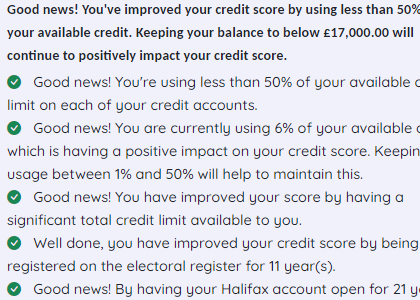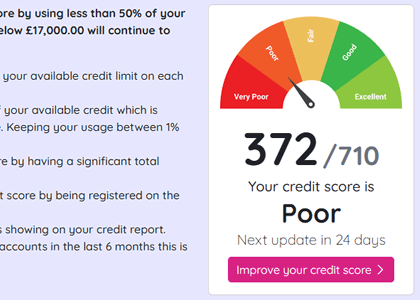Student Credit Scoring

16th Jan 2024
For many students, starting university and moving away from home often means the start of financial independence for many students. However, increased independence from parents often brings with it student loans, overdrafts, or credit cards. Understanding the impact of choosing to take out these forms of credit-on-credit scores is crucial for a healthier financial future post-uni, whatever you are studying. Students might think they don’t need to worry about their credit scores, but the decisions they make while studying can set up a positive financial situation when they start work.
Student Loans and Credit Files
Contrary to common belief, information about student loans does not typically appear on your credit report. This means that lenders assessing your situation for credit cards or mortgages, won't factor in a student loan when making lending decisions. However, exceptions may apply based on the era in which you attended university.
Mortgage Affordability Checks
While student loans might not appear on your credit files, they do play a role in mortgage affordability assessments. Lenders evaluate your ability to make mortgage repayments, considering regular monthly expenses, including student loans. For many students, this is not something which they will come up against for several years after graduation.
Understanding Credit Scoring
Credit scores are used by lenders to predict future behaviour based on past behaviour. Students often have limited credit history, and this makes it difficult for a lender to assess their previous behaviour. Responsible credit management can start to build your credit score while a student and increase future borrowing opportunities. Download one of the apps onto your phone and get into the habit of checking your credit score regularly to get an idea of how the numbers change.
Unarranged Overdrafts
Students may rely on overdrafts, but going past an arranged overdraft limit and into an unarranged overdraft can lower your credit score. Even though most student accounts do not charge for unarranged overdrafts, this negative impact on credit ratings means you should try to stay within arranged limits. If you suspect that you might run out of funds before the next student loan payment comes in, check with your bank to see if you can extend your authorised overdraft limit.
Electoral Register
Registering to vote is one of the most straightforward ways to build your credit score. Lenders always use the electoral roll for verifying your address and checking identities. Students studying away from home can register at both addresses for local election participation. Alternatively, make sure you use the address where you are on the electoral register when applying for a loan or new credit card.
Flatmate's Credit Score Impact
Living with a flatmate who has a bad credit record won’t necessarily affect your rating too. However, if both of your names are on the gas or broadband bill, this may create a financial link in the credit reference agency database. If you have negative financial links with a flatmate, ask for a notice of disassociation from the credit reference agencies to break that link.
Don't risk missing
something important
Access a comprehensive credit report
that includes detailed data from TransUnion
View your credit score for only £1.95.
You can view it for 1 month, after which it will be £14.95 per month unless cancelled.
See How You Score

See How You Score
An Independent View Of Your Credit Score
Lenders typically use their own systems to calculate your Credit Score based on the information in your Credit Report, often checking with one or more Credit Reference Agencies. Your Credit Check Online Credit Score is derived from all the Credit Report information we gather from TransUnion, helping you understand how you might be assessed when applying for credit.

Understand What is Affecting Your Credit Score
Quickly see how the details in your Credit Report influence your Credit Check Online Credit Score, both positively and negatively. This clear overview helps you identify areas for improvement and better understand the factors that lenders consider when assessing your creditworthiness.
View your credit score for only £1.95.
You can view it for 1 month, after which it will be £14.95 per month unless cancelled.